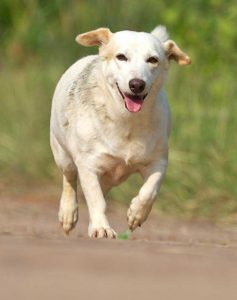 Preventing Cat & Dog Heat Stroke in North Richland Hills, TX
Preventing Cat & Dog Heat Stroke in North Richland Hills, TX
North Texas gets uncomfortably hot for humans in summer — so you can only imagine what your pet, swathed in a fur coat, must feel like. Overheating and suffering from heat stroke is a real risk for cats and dogs. Your veterinarian at Cornerstone Animal Hospital in North Richland Hills, TX, can give you pet tips for avoiding heat stroke.
Signs of Heat Stress in Animals
The signs that your dog or cat are suffering from the heat aren’t that subtle. For dogs, the signs are clear: weakness, panting (beyond what your dog may normally do), excessive and thick saliva, and a bright red color around the eyes, tongue, mouth, and sometimes the skin. The dog can also vomit or have diarrhea, or it can collapse. The signs of heat stress in cats can include panting, drooling, a restlessness that includes looking for cooler spots, sweaty paws, redness, clumsy gait, vomiting, and a rapid pulse.
How to Prevent Heat Illness in Pets
It can’t be said enough: Never leave your pet in the car on a warm or hot day. Even on a fairly nice day, the temperature inside a car can rise rapidly. Try to exercise your dog in the early morning or early evening, keep the pet in the shade, and never assume that a cat will be just fine with a lot of heat — they may like sunbeams, but they can overheat very easily. If you can’t keep the pet in a cool place, keep cool, wet cloths and ice cubes with you. If your air conditioning breaks, you may need to put your pet in a kennel or have it stay with someone whose air conditioning is working.
If Your Pet Is Overheated, Contact Cornerstone Animal Hospital in North Richland Hills Immediately
At Cornerstone Animal Hospital in North Richland Hills, TX, we know how quickly heat stroke can occur, and how much you want to keep your pet safe. Contact the Cornerstone Animal Hospital at (817) 514-8387 to immediately treat your pet or to set up an appointment with a veterinarian to discuss heat-protection strategies.
